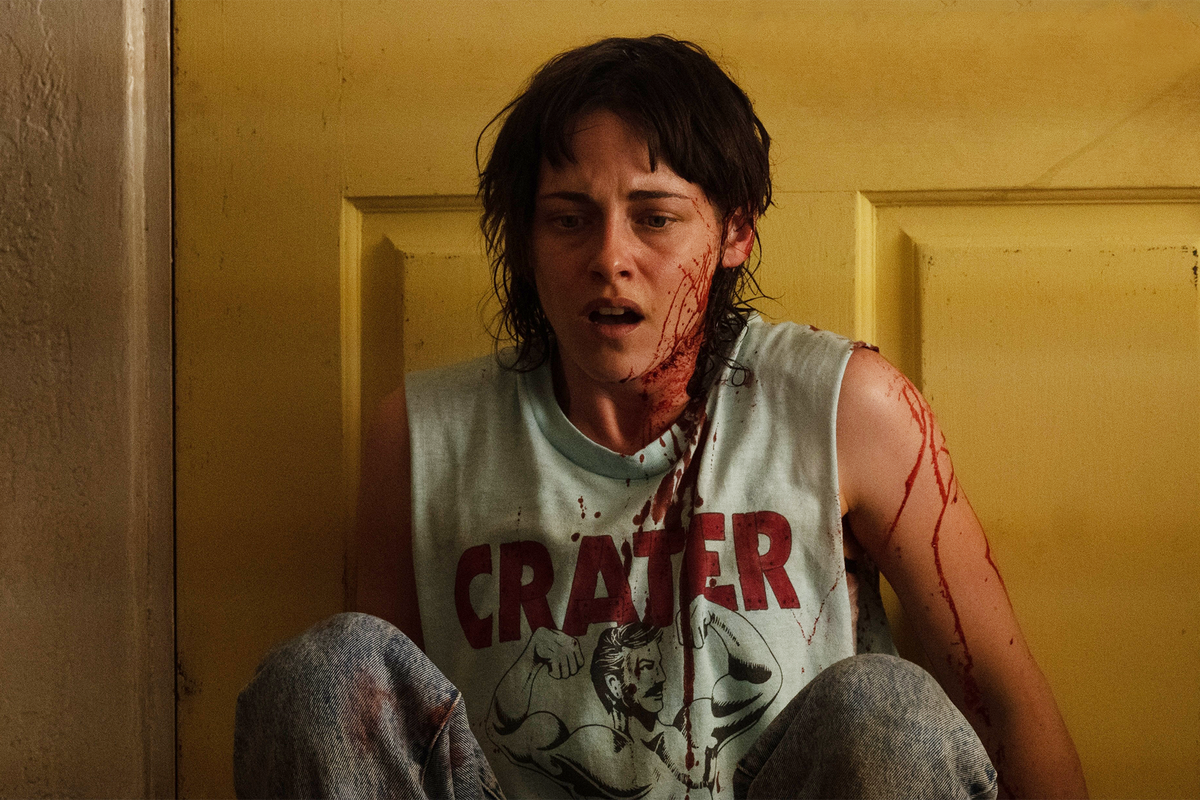Love Lies Bleeding: The Diverse Filmography of Rose Glass
‘Love Lies Bleeding’ is a film released in 2024, co-written and directed by Rose Glass. The film stars Kristen Stewart and Katy O’Brian as its leading pair. It is Glass’ second feature-length flick, stemming from her initial desire to make a film about a bodybuilder and the “psychological traits it might take somebody to actually do [bodybuilding].”
Stewart plays Lou, a gym manager whose job leads her to meet Jackie (O’Brian), a nomadic bodybuilder, en route to a competition in Las Vegas. Jackie is so buff you won’t be able to think straight - Lou definitely can’t. The pair instantly connect, kickstarting an intense and, at times, violent romance. Alongside O’Brian and K Stew, the cast contains other familiar names such as Dave Franco, Ed Harris, and Jena Malone.
The film sets an ominous tone immediately, confronting the viewer with a blood-red tinted canyon and an eerily dissonant opening score. As the score becomes layered with minor-key synths, we’re drawn into a fluorescent-lit gym filled with sweaty, muscular bodies, lycra straight out of the 80s, and domineering machinery. Glass wastes no time in building a “fun, and sweaty, and violent” universe.
Her goal was to set the film in a “heightened world” located deeply within Americana culture, compiling a watchlist for her cast containing titles like ‘Saturday Night Fever,’ ‘Showgirls,’ and ‘Paris, Texas’. Glass certainly succeeds in entrenching this movie in an exaggerated American world - much of the film is set in the orange desert, punctuated with guns galore, beer, and a big ol’ truck. Yet, Glass seamlessly combines the film's over-the-top elements with its more serious tense moments. Expect to watch certain scenes while cowering behind a cushion.

When Jackie and Lou’s paths cross, it feels like more than just coincidence, but rather fate binding these two as they realise they have mutual connections. Jackie has found work as a waitress at a gun range, which happens to be owned by none other than Lou Senior, the younger Lou’s father.
All of the performances in this film are exceptional, but Ed Harris is especially talented as Lou Sr. His ability to instil fear within those watching is palpable. Without knowing all the details, when Lou shares that she doesn’t speak to her dad anymore, viewers will immediately understand why. You can sense a darkness inside this man, even if you don’t fully know where it stems from. His unsettling presence on screen is exacerbated by his unnerving obsession with beetles, presenting Lou Sr. as a seriously off-putting man.
This film, similarly to Glass’ first feature-length ‘Saint Maud’, is female-centric: fully fleshed-out women presented as multifaceted people rather than just archetypes. Lou struggles to control her rage towards her sister’s abusive husband, while attempting to quit smoking. Jackie seems to use others for personal gain and is dedicated to her craft, but ultimately forms true feelings for Lou. Beth, Lou’s sister, played by Malone, bears her husband’s abuse but never wants to leave him, believing they are soulmates. The men, on the other hand, are all cartoonishly evil. Somehow, these character dynamics work well together, and they bounce off one another, contributing to a captivating watching experience.
Female strength pulls the plot along - physical strength, emotional strength, and the mental capacity to cope with the events of the narrative. These women know what they want and are determined to get it. Beth, despite being victimised by her husband, is not presented as a victim. Regardless of whether you agree with her or even believe her, she is strongly vocal about what she wants… that being her husband. Jackie wants to win her bodybuilding competition and will get to Las Vegas no matter what it takes. Lou wants to hang out with her sexy, jacked girlfriend, wants her sister safe, and everyone else to leave her alone. They are not perfect people, often behaving in ways you may not personally behave, but Glass effectively communicates who they are and why they are like this.
Returning to Glass’ debut, ‘Saint Maud,’ after watching her sophomore film reiterates Glass’ interest in the psyche of her characters. ‘Saint Maud’ is a much less exaggerated narrative, limited to a select few cast. It is set in the UK and focuses almost entirely on the titular Maud, a palliative care nurse for a private agency.

Maud finds herself caring for a former dancer, Amanda, after being dismissed from her previous role in a hospital. As the film progresses, we begin to understand that her departure from this previous role has taken a massive toll on Maud’s mental well-being, prompting her towards religious faith and even spurring the changing of her name from Katie to Maud. Maud runs towards this faith with desperation, praying before each meal, attempting to convert the atheistic Amanda, and even engaging in self-flagellation.
In ‘Love Lies Bleeding’, Glass utilises Jackie to distort reality. During scenes from her perspective, the viewer witnesses the world around her shift as she begins to lose her stability. In ‘Saint Maud,’ however, it is less apparent which events sincerely occur vs which are imagined (willed into being by Maud’s desire for God). A desire for connection exists at the heart of both movies and where Jackie and Lou succeed in finding another soul that understands their darkest impulses, Maud is less successful.
The narrative of ‘Saint Maud’ feels significantly lonelier and quieter. It is devoted to its protagonist’s frame of mind, allowing external events to take a backseat. Morfydd Clark as Maud is fascinating, contorting her face throughout various points of the film into almost inhuman expressions - and with a runtime of less than 90 minutes, the film has no time to drag, and so avoids the downfall of becoming boring.
Overall, I would thoroughly encourage any interested readers to check out Glass’ work. For the avid horrid fans, ‘Saint Maud’ will likely be more up your street. Or, if you prefer a high stakes, action-packed Hollywood thriller, then I’d recommend ‘Love Lies Bleeding.’ Regardless of which film you go for, both have a lot going for them and if you’re asking me, I’d say just watch them both. With such contrasting tones, Glass has thoroughly proven herself as more than just a one-trick pony; I can’t wait to watch whatever she blesses us with next!

